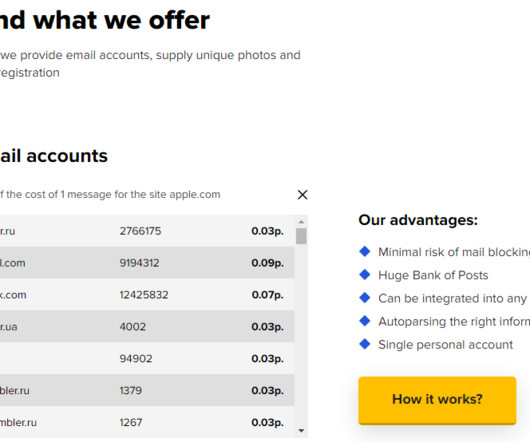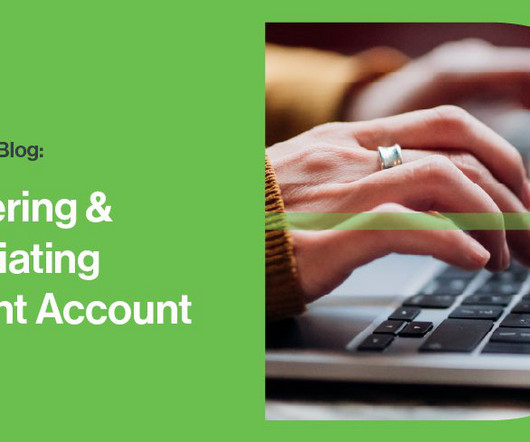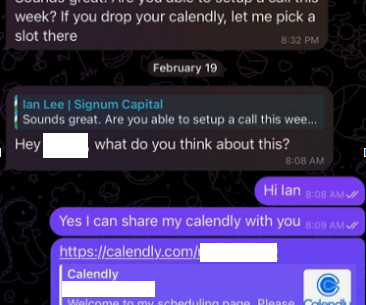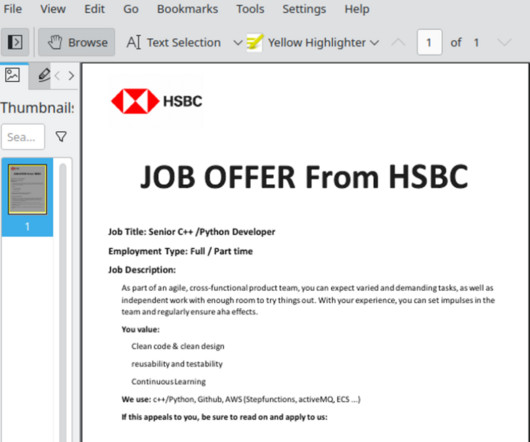Predatory app downloaded 100,000 times from Google Play Store steals data, uses it for blackmail
Malwarebytes
FEBRUARY 25, 2025
A malicious app claiming to be a financial management tool has been downloaded 100,000 times from the Google Play Store. In this case, the loan app evaded detection on Google Play, by loading a WebView to redirect users to an external website from where they could download the app hosted on an Amazon EC2 server.















Let's personalize your content